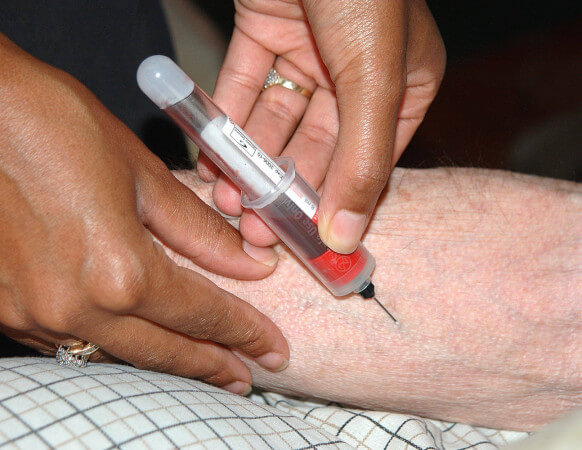The following article is from Christy Dunn, former juvenile prosecutor in the Tarrant County District Attorney’s Office – Juvenile Division:
_______________________________
 As parents, we want the best for our children. We also want to protect our kids as much as we can. So, naturally, the first reaction for most parents when they find out that their child is being charged with a crime in the juvenile system is to do whatever they can to make the whole thing go away. However, in many cases, this is the worst thing you can do for your child. A lot of times, having a child placed on juvenile probation can be a blessing in disguise, especially if you understand the keys to success in the juvenile system.
As parents, we want the best for our children. We also want to protect our kids as much as we can. So, naturally, the first reaction for most parents when they find out that their child is being charged with a crime in the juvenile system is to do whatever they can to make the whole thing go away. However, in many cases, this is the worst thing you can do for your child. A lot of times, having a child placed on juvenile probation can be a blessing in disguise, especially if you understand the keys to success in the juvenile system.
The Keys to Success
The keys to success for a child in the juvenile system, at least in Tarrant County, are the attitudes and beliefs of the parents. It is crucial that you remove the blinders of parental love and take an honest and unbiased look at your child’s case. You need to take this objective stance on the case as early in the process as possible. There are several reasons why this is important.
Reason #1: Belief in Your Child’s Innocence and Willingness to Fight
If your child has been accused of committing a crime and is truly innocent, then they need to know that you believe in their innocence. Your child also needs to know that you are going to be there to support them and be willing to fight for them. You can show this support by hiring an attorney to investigate and fight the case. You also need to communicate your support to your child during this difficult time.
Reason #2: Open to Accept Your Child’s Mistakes
Another reason to be honest with yourself about your child’s juvenile case is because it will allow you to have an open mind to the fact that your kid might be guilty of doing what they are accused of. No child is perfect, and sometimes they do stupid things that get them into trouble with the law.
As a general rule of thumb, Tarrant County juvenile prosecutors don’t tend to file frivolous cases. This means that if they file a petition on your child, they usually have some evidence to show that the juvenile was, at a minimum, present during or involved in the commission of the crime. As a parent, you need to be able to consider this evidence with an open mind.
In some cases, it is difficult for a juvenile to admit wrongdoings if their parents are unwilling to accept their guilt. If you are adamant that your child is innocent, they may feel obligated to go along with your beliefs in order to avoid disappointing you. The hardest person in the world to confess to is your parent. By having an open mind, you give your child the opportunity to admit their guilt to you without the worry of disappointing you.
Reason #3: Realistic Assessment of Your Child’s Needs and Problems
In Tarrant County, we see that many times, a juvenile will be involved in a crime due to a need or problem that they have. Sometimes, this is a drug addiction or anger problem. Sometimes, it is a mental health condition or a conflict with someone within the household. Taking an honest look at your child’s juvenile case can help you to realistically assess what their needs and problems are. Acknowledging these problems is the first step to solving them. It is important that both the child and parents accept the problems and make a commitment to fix them.
Reason #4: Realization of Your Contribution
It can be a hard pill to swallow, but sometimes we, as parents, must realize that we have contributed to our children’s problems. This doesn’t mean that we are bad parents. It doesn’t mean that we intentionally set out to harm our children. But, in some cases, the parents have contributed to the problems that caused the child to land in juvenile court. By honestly accepting your part in the problem, you will be able to help solve it for your child in a much quicker manner.
Reason #5: Participation in a Plan to Address the Problems
Taking an objective view of your child’s juvenile case, and your part in creating the problems that led to it, will allow you to be an active participant in coming up with a plan to address the problems. Once a juvenile is involved with the juvenile court system, they gain access to many services that you may not have been aware were available. You will also gain access to one or more probation officers, attorneys, and possibly counselors that can help you and your child meet your child’s underlying needs.
Reason #6: Communicate a Team Approach to Your Child
Your thoughts and attitudes about your child, their case, and the resolution of it are conveyed to your child, whether you realize it or not. You can have a huge impact on how your child feels about the case and what they learn from it. By not judging your child and having an open mind to the outcome, you communicate to your child that you are on their side. You let them know that you are in this together and are there to help them be successful. This is vital to their belief in themselves and their willingness to engage in the process.
Reason #7: Parental Engagement in Probation
Unlike adults, juveniles cannot successfully complete probation without help from their parents. Many times, they do not have a driver’s license or transportation to get to and from their counseling, community service, and probation checks by themselves. So, parental engagement in the probation is a must. If you as the parent buy into the positive aspects of probation and the benefits it can give to your child, you will start to see the buy-in by your child. Additionally, you will ensure that your child gets to each appointment while on probation. By being a part of the process, you will become a valuable part of the team that is there to help your child grow and learn from his mistakes.
Conclusion
Kids tend to feed off of their parents’ beliefs and attitudes when it comes to their viewpoints on the juvenile justice system. Therefore, the secret to your child’s success as they navigate their way through the system is your own honest and open mindset about the process. By having the right attitude, you can affect how and what your child gets out of the system and whether your child returns to the system later. While it may not be easy, this can be a great opportunity to teach your child many life lessons while helping them take a huge leap in the growing up process. Your opinion matters, especially to your child.

 Car accidents are common sights on Texas roads. Whether on busy highways or country backroads, accidents happen daily. Even though improvements in vehicle safety features continue to lower a driver’s risk of injury or death on roadways, the chances of completely avoiding an injury as a result of a collision are pretty slim. Most drivers will walk away with at least some bruising, small cuts and scrapes, or whiplash. These drivers would most likely consider themselves lucky to have avoided more serious injuries. Unfortunately, though these “minor” injuries are easily seen, they may not necessarily be the complete extent of a person’s injuries.
Car accidents are common sights on Texas roads. Whether on busy highways or country backroads, accidents happen daily. Even though improvements in vehicle safety features continue to lower a driver’s risk of injury or death on roadways, the chances of completely avoiding an injury as a result of a collision are pretty slim. Most drivers will walk away with at least some bruising, small cuts and scrapes, or whiplash. These drivers would most likely consider themselves lucky to have avoided more serious injuries. Unfortunately, though these “minor” injuries are easily seen, they may not necessarily be the complete extent of a person’s injuries.

 Barnett Howard & Williams PLLC recently completed a full renovation of the historic Atelier Building (1905) in downtown Fort Worth. The Atelier Building is one of the oldest buildings in downtown Fort Worth, Texas that stills stands today. Built in 1905, the Atelier Building housed several different businesses over its 112-year history, including architects, banks, and a restaurant at one time. Located on 8th street between Houston and Throckmorton, the Atelier Building is marked by its dual terra-cotta fireplaces and marble facade.
Barnett Howard & Williams PLLC recently completed a full renovation of the historic Atelier Building (1905) in downtown Fort Worth. The Atelier Building is one of the oldest buildings in downtown Fort Worth, Texas that stills stands today. Built in 1905, the Atelier Building housed several different businesses over its 112-year history, including architects, banks, and a restaurant at one time. Located on 8th street between Houston and Throckmorton, the Atelier Building is marked by its dual terra-cotta fireplaces and marble facade.
 As parents, we want the best for our children. We also want to protect our kids as much as we can. So, naturally, the first reaction for most parents when they find out that their child is being charged with a crime in the juvenile system is to do whatever they can to make the whole thing go away. However, in many cases, this is the worst thing you can do for your child. A lot of times, having a child placed on juvenile probation can be a blessing in disguise, especially if you understand the keys to success in the juvenile system.
As parents, we want the best for our children. We also want to protect our kids as much as we can. So, naturally, the first reaction for most parents when they find out that their child is being charged with a crime in the juvenile system is to do whatever they can to make the whole thing go away. However, in many cases, this is the worst thing you can do for your child. A lot of times, having a child placed on juvenile probation can be a blessing in disguise, especially if you understand the keys to success in the juvenile system.
 Contrary to television portrayals, most criminal cases never reach trial. While it is difficult to put a number of it, I would say that 90 to 95% of criminal cases are resolved by dismissal or plea bargain. Our Fort Worth criminal defense attorneys put the interests of the client first and will always pursue a dismissal and sometimes attempt to reach a favorable plea deal with the prosecutor as an alternative to the uncertainty of trial. But in some occasions, a trial is the only way to go. What follows is a recent case opinion from the Texas Court of Criminal Appeals regarding a plea bargain situation gone wrong.
Contrary to television portrayals, most criminal cases never reach trial. While it is difficult to put a number of it, I would say that 90 to 95% of criminal cases are resolved by dismissal or plea bargain. Our Fort Worth criminal defense attorneys put the interests of the client first and will always pursue a dismissal and sometimes attempt to reach a favorable plea deal with the prosecutor as an alternative to the uncertainty of trial. But in some occasions, a trial is the only way to go. What follows is a recent case opinion from the Texas Court of Criminal Appeals regarding a plea bargain situation gone wrong.
 One of the key issues in any criminal case is causation. In order to be found guilty of a crime, a defendant’s actions must be found to have been the cause of the criminal act. While causation may seem like a simple thing to prove, causation may depend as much on the actions of the victim as on the actions of the defendant.
One of the key issues in any criminal case is causation. In order to be found guilty of a crime, a defendant’s actions must be found to have been the cause of the criminal act. While causation may seem like a simple thing to prove, causation may depend as much on the actions of the victim as on the actions of the defendant.
 DWI Update: Some clients want to see their DWI video. Some don’t. Some want to take it home and show their friends and some want to dig a deep hole and bury it away forever. Since the passing of the Michael Morton act, regardless of their clients’ wishes, criminal defense lawyers could not provide a copy of the DWI video without first obtaining a court order or prosecutor permission. This all changes on 9/1/15.
DWI Update: Some clients want to see their DWI video. Some don’t. Some want to take it home and show their friends and some want to dig a deep hole and bury it away forever. Since the passing of the Michael Morton act, regardless of their clients’ wishes, criminal defense lawyers could not provide a copy of the DWI video without first obtaining a court order or prosecutor permission. This all changes on 9/1/15.
 The Fourth Amendment, generally, protects American citizens from unreasonable searches and seizures. Nevertheless, there are exceptions that allow police officers the ability to enter one’s home without a warrant or notice. These instances are commonly called “No-Knock” entries and are permitted only when a police officer has a reasonable suspicion that knocking and announcing their entry would be dangerous or futile.
The Fourth Amendment, generally, protects American citizens from unreasonable searches and seizures. Nevertheless, there are exceptions that allow police officers the ability to enter one’s home without a warrant or notice. These instances are commonly called “No-Knock” entries and are permitted only when a police officer has a reasonable suspicion that knocking and announcing their entry would be dangerous or futile.
 Mosquitoes are pesky little things. They land on you, insert a sharp needle-like nose into your arm and suck your blood without even asking for permission. Well, like the hard slap of a hand on top of one of these pests, Texas courts are finally falling in line behind the Supreme Court’s ruling in Missouri v. McNeely (133 S. Ct. 1551 (2013)) striking down warrantless blood draws of a driver’s blood in DWI cases.
Mosquitoes are pesky little things. They land on you, insert a sharp needle-like nose into your arm and suck your blood without even asking for permission. Well, like the hard slap of a hand on top of one of these pests, Texas courts are finally falling in line behind the Supreme Court’s ruling in Missouri v. McNeely (133 S. Ct. 1551 (2013)) striking down warrantless blood draws of a driver’s blood in DWI cases.
 The punishment range for a second-degree felony sexual assault is 2-20 years in prison. However, the minimum period of community supervision (i.e. probation) for the same offense is five years. So can a trial court award community supervision if the jury returns a punishment verdict of less than five years? Here’s how this situation played out down in Houston:
The punishment range for a second-degree felony sexual assault is 2-20 years in prison. However, the minimum period of community supervision (i.e. probation) for the same offense is five years. So can a trial court award community supervision if the jury returns a punishment verdict of less than five years? Here’s how this situation played out down in Houston:
 As I was perusing my typical news sources this morning, I came across
As I was perusing my typical news sources this morning, I came across 





